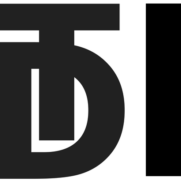I was listening to two beers with Steve the other day

Steve was doing some ethical tests with his interviewer. I was quite interesting. Towards the end of the show he said something like
“Death is required because it means that ethics can evolve”.
After hearing that I sent him an email
“…..I disagree with that premise.
The argument you make assumes that ethical norms that are in the majority today are more correct than they were previously. I do not think it is a justifiable statement.
My first point is that that ethics is about belief and belief is not provable.
We all have a certain belief system. I believe my system is correct (otherwise it would not be my belief) therefore by definition all opposing beliefs are incorrect.
For example the majority now believes slavery to be bad, 300 years ago that the majority thought is was good. It was philosophical changes that brought about this difference in viewpoint. No new evidence has come up about slavery to my knowledge that has changed the views of people. Currently I believe slavery is wrong, if you asked someone 300 years ago they would say it is right. Who’s right? If an “average” person from 300 years ago was transported into the future hw would conclude that ethics have got a great deal worse over time as they do not agree with his view.
My second point is that even from my own viewpoint ethics are not improving over time. It is true that from my viewpoint there are recent ethical improvements however there are also significant places where I believe things have got worse. For example Industrial scale mass murder is a modern phenomenon (this activity requires an certain ethical framework to let it happen)”
Please leave your comments below


Hi Paul,
I think a possible fault in your argument is in interpreting the notion of evolution as improvement. Evolution implies change, usually in the context of the characteristics of an environment and the characteristics of a the organism (or system more broadly) . I do not believe evolution necessarily implies improvement. Thus, as people die, ethics do tend to evolve (i.e., change).
Thanks for your feedback Reg.
Incorrect on unclear definitions can be a cause of muddy thinking and you are right to point this out. The problem is that there are several definitions of the word “evolution” of which “gradual change” is one and probably the origonal. But since Darwins theory of evolution it has an additional meaning.
“Biology To develop or arise through evolutionary processes.”. I got the following from http://www.thefreedictionary.com
e·volve (-vlv)
v. e·volved, e·volv·ing, e·volves
v.tr.
1.
a. To develop or achieve gradually: evolve a style of one’s own.
b. To work (something) out; devise: “the schemes he evolved to line his purse” (S.J. Perelman).
2. Biology To develop (a characteristic) by evolutionary processes.
3. To give off; emit.
v.intr.
1. To undergo gradual change; develop: an amateur acting group that evolved into a theatrical company.
2. Biology To develop or arise through evolutionary processes.